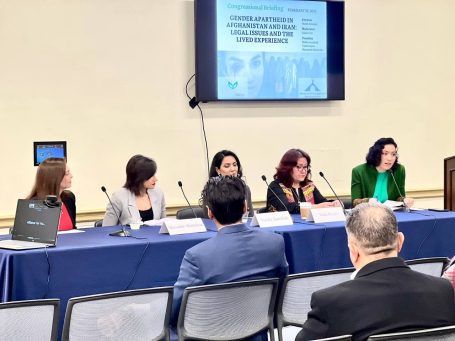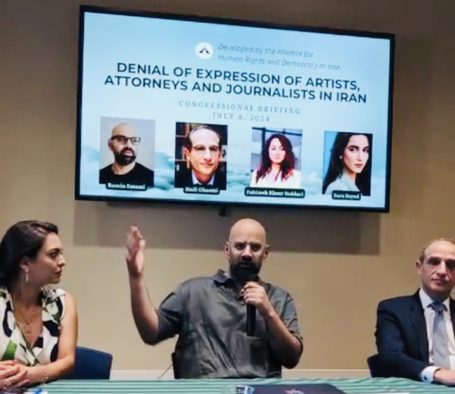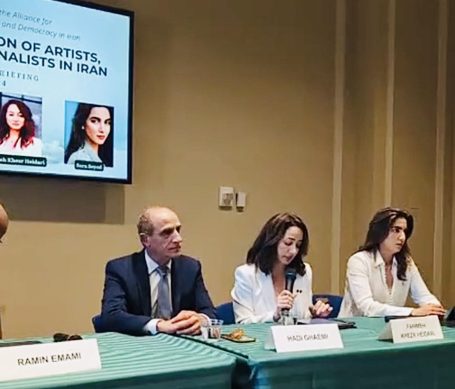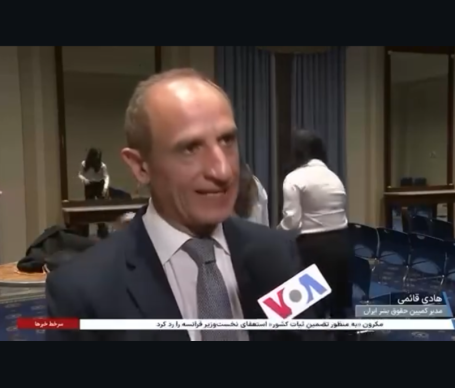Government Relations & Advocacy
As a 501(c)(3) nonprofit, JINA Alliance plays a valuable role in providing the public, policymakers and government with informative analysis. Our research helps to broaden understanding of important human rights, democracy and global security issues.
Congressional Briefings
JINA Alliance excels at bringing together experts and thought leaders for its unique and informative congressional briefings. We are a leader among nonprofits in our ability to bring important human rights, democracy and global security issues to the U.S. Congress.

FEB 2025
Gender Apartheid in Afghanistan and Iran
Our development of this briefing began in Fall 2024, culminating in a successful event in February 2025. In line with our commitment to collaboration, we worked with our co-host Right to Learn Afghanistan, a Canadian NGO dedicated to supporting Afghan women, and are proud of our thoughtful outreach to ensure an inclusive event for both Afghans and Iranians.
Our congressional briefings integrate expertise with testimonies from survivors and activists. This historic event broke new ground in the U.S. Congress by examining the nature of gender-based oppression by both the Taliban and Islamic Republic, and explaining how it is distinct from gender discrimination through enshrinement into law. Expert panelists discussed how codification of gender apartheid systematically strips women and girls of autonomy, education and participation in public life. Importantly, the briefing unified legal discussion of gender apartheid with testimonies of its lived reality, including the powerful personal journey of Mersedeh Shahinkar, an Iranian survivor of intentional blinding, human rights activist and recipient of the 2023 Sakharov Prize on behalf of Woman Life Freedom. By drawing parallels between the two countries, the discussion revealed a shared pattern of state-sponsored subjugation and highlighted the global security implications of normalizing such regimes. The briefing made clear: gender apartheid is not a regional issue—it is a global emergency demanding legal recognition, concrete international action, and solidarity at every level.



JULY 2024
Denial of Expression: Artists, Attorneys & Journalists in Iran
This first-of-its-kind briefing examined the limitations on and risks of freedom of expression, artistry, justice and due process in Iran, and brought experts, survivors and advocates together for a deeply informative program in the U.S. Congress.
Attorneys in Iran walk a tightrope of risk, in particular human rights attorneys, who not only see their clients denied due process, but also face the same risks if they advocate too strongly for justice. Journalists in Iran live with threats and constant monitoring of their activities, and exposing significant truths comes with harsh outcomes. One of the most painful recent examples is the case of Niloofar Hamedi and Elaheh Mohammadi, the journalists who revealed and covered the death-in-custody of Mahsa Jina Amini. They were sentenced in October 2023 to 13 and 12 years in prison, respectively, by an Iranian Revolutionary Court. Artists who criticize the Islamic Republic remain hidden in the underground or risk arrest and torture for dystopian crimes manufactured by the Islamic Republic, such as “waging war against God.” The most notable example of this injustice is beloved Iranian political dissident and rapper Toomaj Salehi, who received a death sentence and suffered years of imprisonment and torture - including over 500 days of solitary confinement. Raam Emami, an artist who emerged out of Iran’s music underground and escaped Iran after the Islamic Republic killed his father, highlighted the challenges of artistic expression in Iran from his powerful firsthand account.



